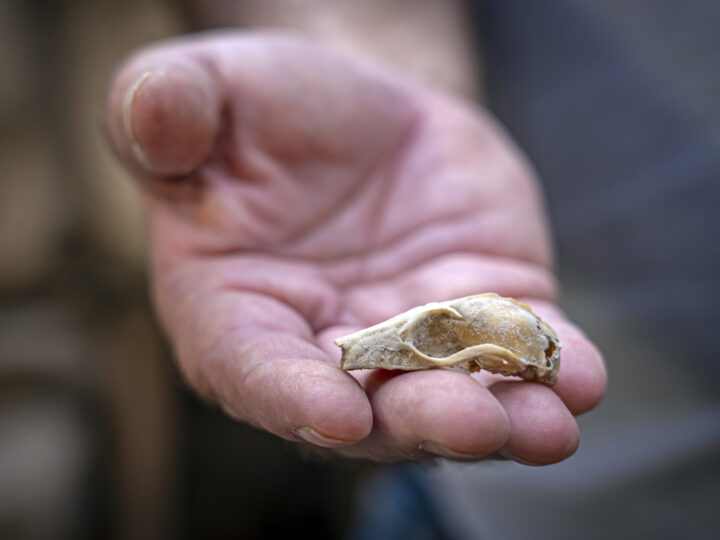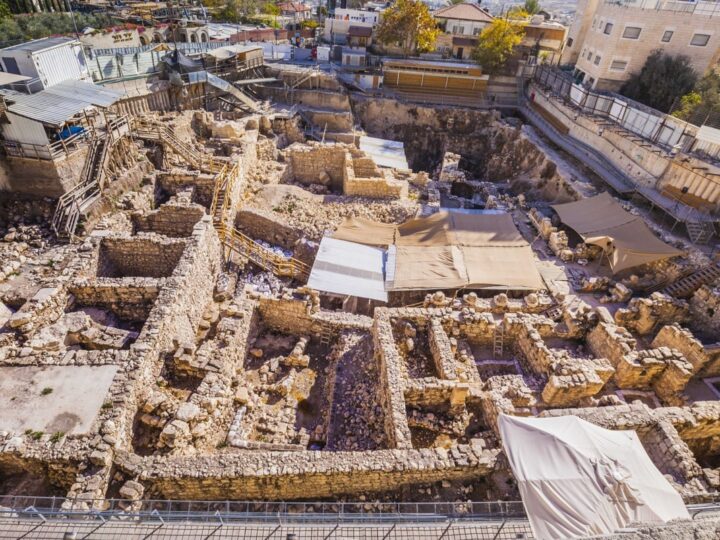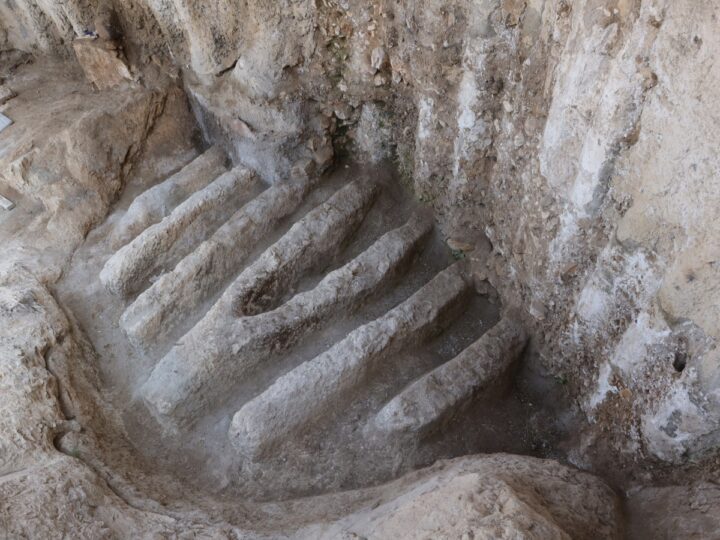Israeli archaeologists have announced the discovery of a rare clay seal – likely used to certify the purity of ritual objects used in the Second Temple – at an excavation site under the Old City of Jerusalem.
The coin-sized seal, measuring about two centimeters in diameter, bears two Aramaic words meaning “pure for God.”
It is the first “direct archaeological evidence of activity on the Temple Mount and the workings of the Temple during the Second Temple period,” according to the Israel Antiquities Authority.
Archaeologist Ronny Reich of Haifa University said the seal dates from between the 1st century B.C. to 70 A.D.
“It seems that the inscribed object was used to mark products or objects that were brought to the Temple, and it was imperative they be ritually pure. This stamped impression is probably the kind referred to in the Mishnah as a chotem, or seal. To the best of our knowledge, this is the first time that such an object or anything similar to it was discovered in an archaeological excavation and it constitutes direct archaeological evidence of the activity on the Temple Mount and the workings of the Temple during the Second Temple period,” archaeologists Eli Shukron of the IAA and Prof. Reich said in a statement.
The rare seal was unearthed at the City of David excavation site just outside the Temple Mount compound. Last month, archaeologists found four bronze coins stamped around 17 A.D. by the Roman official Valerius Gratus during an excavation at the site.
Fighting for Israel's truth
We cover what makes life in Israel so special — it's people. A non-profit organization, ISRAEL21c's team of journalists are committed to telling stories that humanize Israelis and show their positive impact on our world. You can bring these stories to life by making a donation of $6/month.







